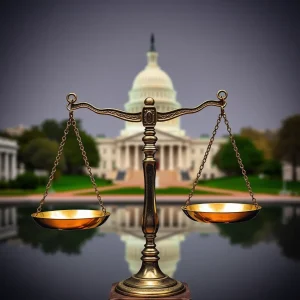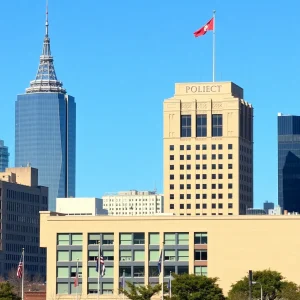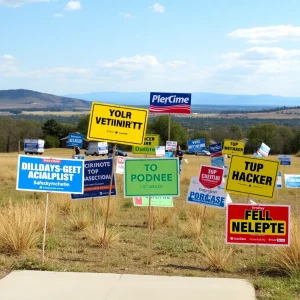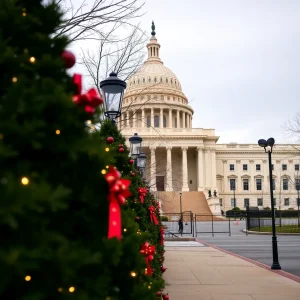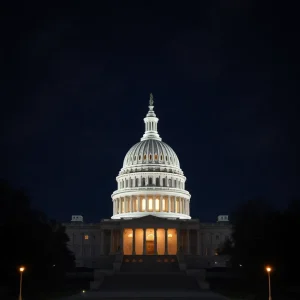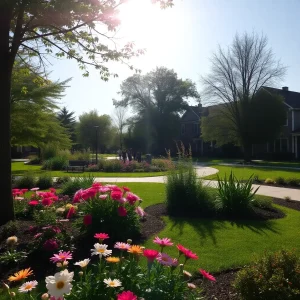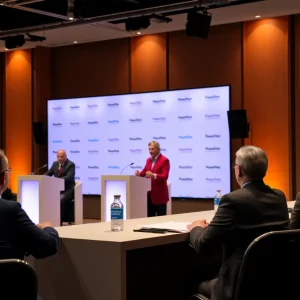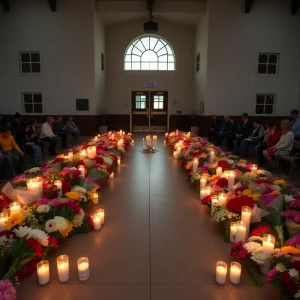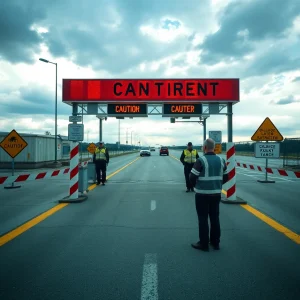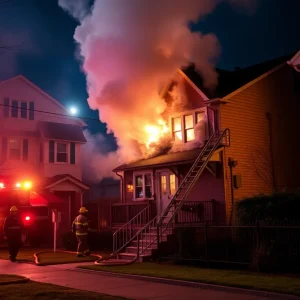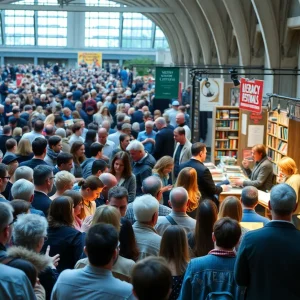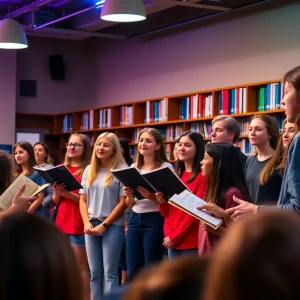Birmingham Community Reflects on the Meaning of Judaism in the Wake of Tragedy
During a poignant gathering at Temple Emanu-El, Rabbi Adam M. Wright delivered a heartfelt Yom Kippur sermon that resonated deeply with attendees, focusing on the events of October 7 and their implications for the Jewish community. The Rabbi opened the service with a reflection on the unfortunate events that occurred, recounting how many Israelis sent final messages to loved ones amid chaos, with simple words like “goodbye,” marking the end of their lives.
Understanding Loss and Resilience
The Rabbi posed essential questions regarding faith, suffering, and the very essence of being Jewish in today’s climate of increasing anti-Semitism and violence. He remarked on the historical significance of the word “goodbye,” tracing its origins back to a phrase meaning “God be with you.” In this sense, those who sent messages on that tragic day were not merely saying farewell but were indicating a finality that was harrowing to contemplate.
As he continued, Rabbi Wright emphasized the obligation of the Jewish faith to meet crises with resilience rather than despair. Referencing the late Chief Rabbi Jonathan Sacks, he reiterated that crisis can lead to renewal and should not lead to hopelessness. “We have faced despair before, and we have rebuilt,” he said, encouraging his congregation to do the same in light of recent events.
The Role of Community and Tradition
Wright stressed that the foundation of Jewish life lies in community and acting upon one’s Jewish identity. He voiced concern over a growing trend of disconnect among young families, urging them to embrace Judaism actively and to contribute to the richness of the community’s traditions. “Judaism needs Jews, and Jews need Judaism,” he candidly stated, highlighting the necessity for participation in religious life for the preservation of future generations.
Wright also reminded attendees that communal bonds must transcend differences in practice and belief, urging solidarity in the face of external threats. “Before Hamas murdered our people, they didn’t ask about our movements—let’s not allow our differences to further divide us,” Wright implored, encouraging attendees to unite in their Jewish identity.
Lessons from the Past
The Rabbi noted that October 7 may serve as a turning point—not just a moment of mourning but an opportunity for Jewish people globally to reevaluate their commitments to tradition. He encouraged families to engage more deeply in their synagogue life, ranging from attending services to volunteering, further cultivating a vibrant, supportive Jewish community.
“Whether it’s celebrating life events or communal mourning, the synagogue is a vital institution,” he emphasized. “We must foster a space where Judaism is central and where we can all come together in shared values, learning, and worship.”
A Call to Action
As he wrapped up his sermon, Rabbi Wright gave a powerful call to action to all attendees: “It’s time to take our Judaism seriously. Be active participants. Engage with your children about your faith, instilling the importance of it in their lives. The legacy we leave behind is crucial—not just for ourselves but for those who will follow us.”
With a blend of somber remembrance and hopeful resolve, the congregation reflected on the Rabbi’s words, unified in their commitment to uphold their Jewish traditions and stand together against hatred and division. The message was clear: through collective strength, faith, and proactive engagement with their identity, the Birmingham community aims to move forward, keeping the memories of those lost close to their hearts.






